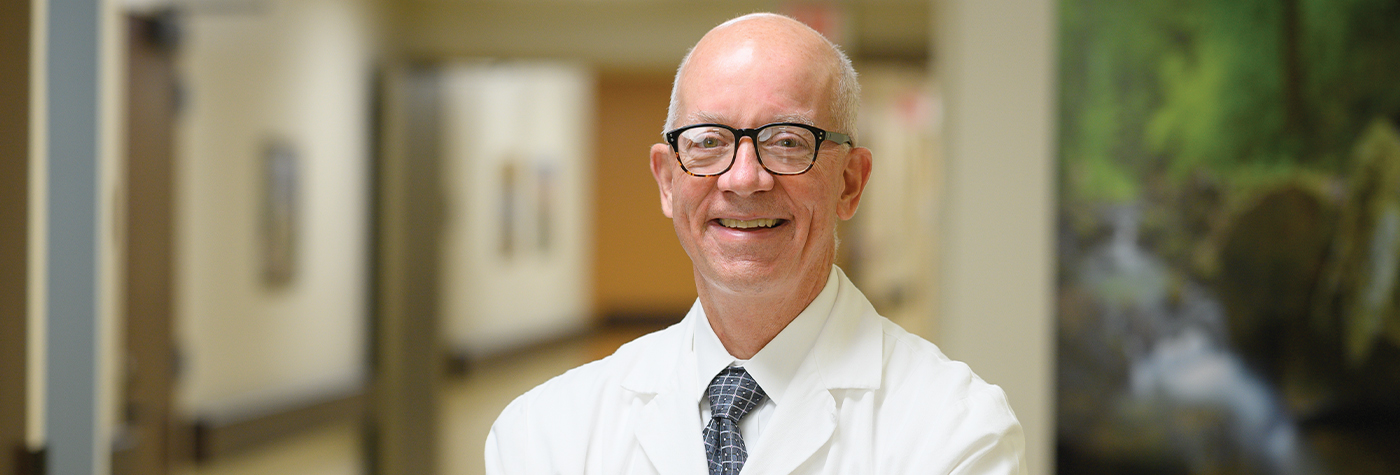Helping cancer patients kick tobacco

Clinical trial engages hospitals across Kentucky to test the effectiveness of letting patients choose their preferred cessation methods.
We know smoking contributes to many cancers, but it also makes it harder to treat cancer. Smokers with cancer have lower cure rates than non-smokers. They also have higher rates of surgical complications than non-smokers.
The easy answer is to quit smoking. But of course, it’s not that simple, as Dr. Joseph Valentino has observed during 10 years of research. The chief of head and neck surgery at UK Markey Cancer Center, Valentino notes all the stress and anxiety that come with a cancer diagnosis can make it a difficult time to quit. “Smoking almost always falls to the back burner,” he said. “There’s also not a lot of guidance on how to deal with smoking cessation for people in the midst of cancer treatment.”
Valentino is the study chair for a clinical trial called Tobacco Treatment Optimization and Preferences during Concurrent Cancer Treatment (TTOP). The study is testing whether it’s easier for cancer patients to quit smoking if they choose their own tobacco treatment.
A previous Markey randomized study showed many smokers have strong opinions about tobacco treatment. Some refused certain treatments or said they would only try a particular treatment. TTOP participants get to choose the treatment they feel will work best for them. With their provider, patients select their medication, nicotine replacement therapy and level of smoking cessation counseling.
This is a multicenter study developed and led by Valentino in collaboration with the Markey Cancer Center Research Network (MCCRN). Participating sites and investigators include:
- UK King’s Daughters, Ashland (Principal Investigator: Dr. David Goebel)
- Med Center Health in Bowling Green (Principal Investigator: Dr. Diego Cabrera)
- Owensboro Health in Owensboro (Principal Investigator:
Dr. Alan Mullins) More sites plan to begin the study in the coming months. When developing the TTOP trial, Valentino collaborated with MCCRN institutions for concept feasibility feedback. This teamwork informed the study plan and provided unique insight for conducting the trial at nonacademic facilities.
The research network hospitals ensure a more complete data picture. They can also show how tobacco treatment can work at regional hospitals with different resources than an academic medical center.
“There’s also not a lot of guidance on how to deal with smoking cessation for patients who are in the midst of cancer treatment.”
Dr. Joseph Valentino
Conducting the study across Kentucky at several MCCRN institutions allows the collection of data from a wide range of clinical settings. That in turn provides research findings that represent a broad range of patients. “Community cancer centers have a different set of personnel, a different set of goals and a different form of operation,” Valentino said. “This data becomes much more valuable if we’ve incorporated those community cancer centers since the majority of cancer is treated in community cancer centers.”
TTOP trial participants include smokers with new or recurring cancers. Patients with lung, head and neck, esophagus, pancreas and other cancers are eligible. Funding for the trial is provided by the Markey Cancer Center.




